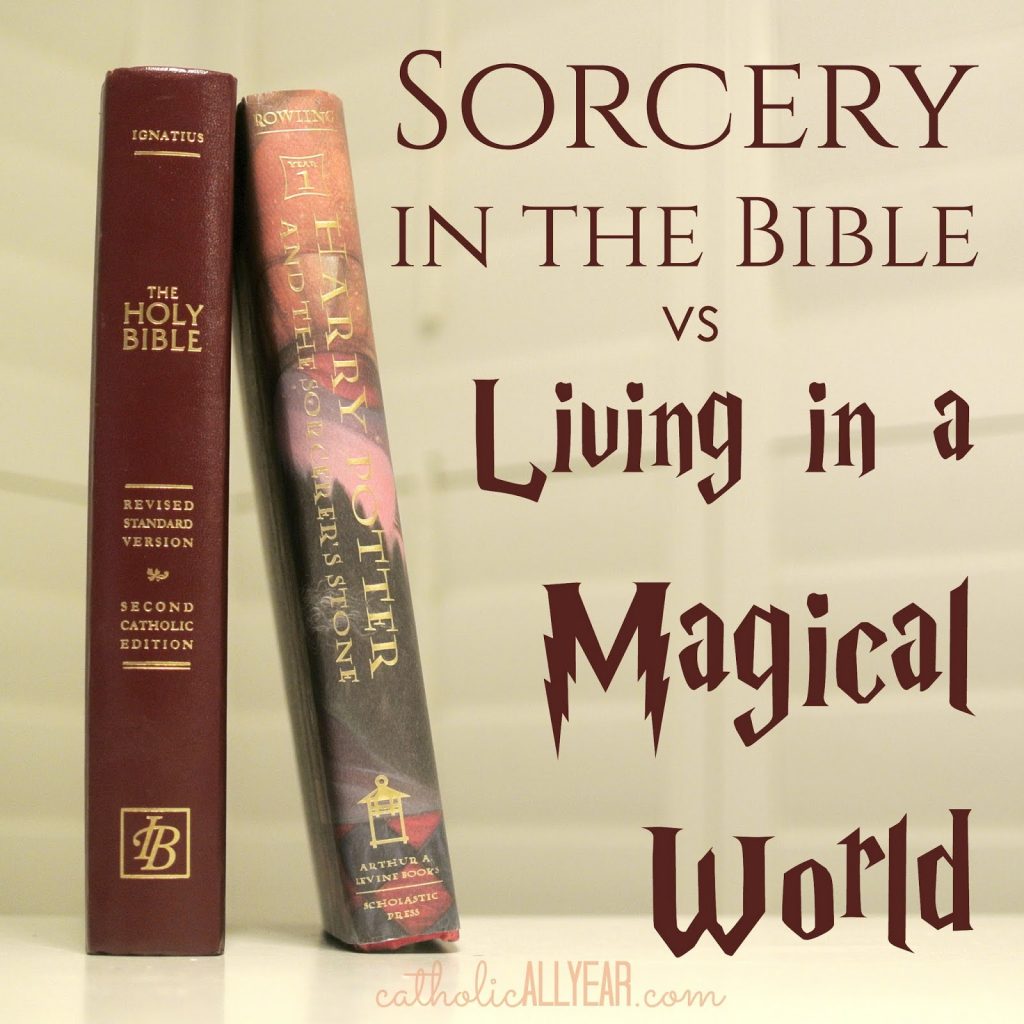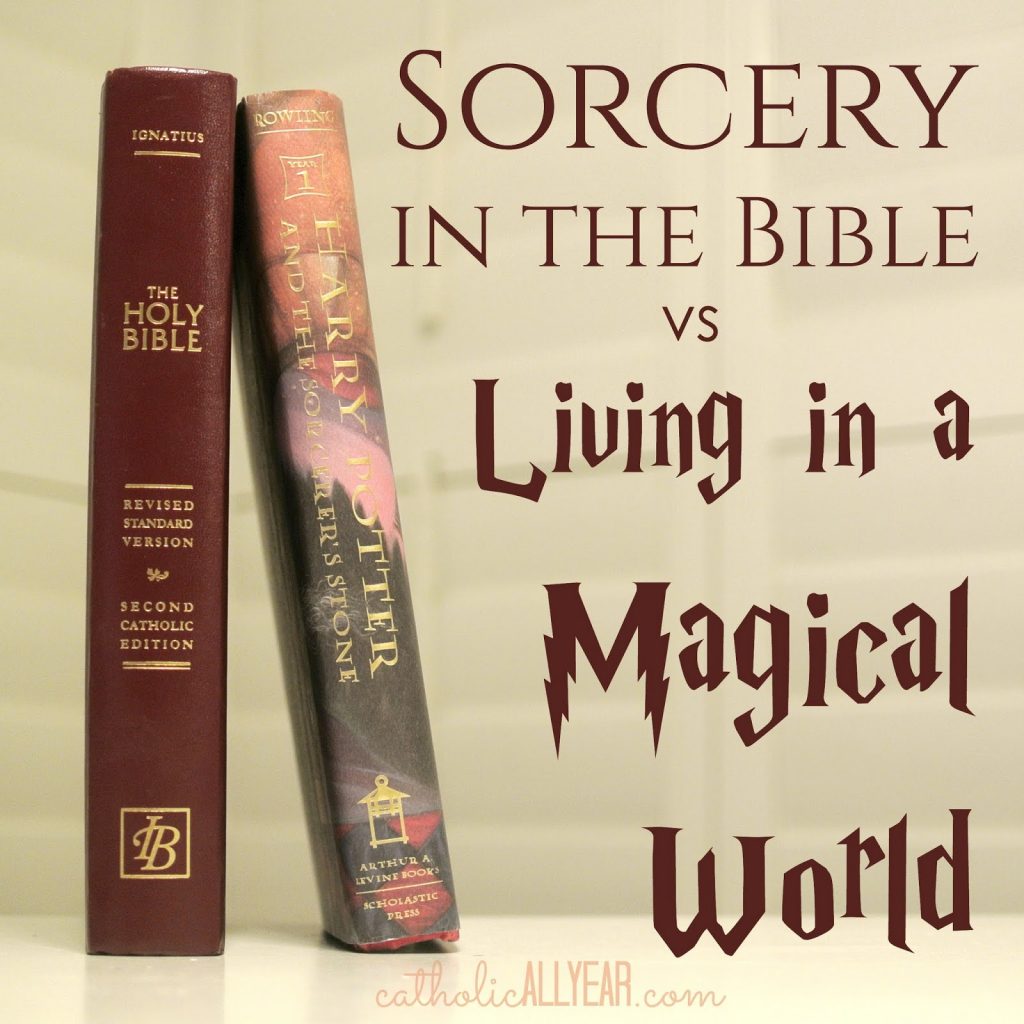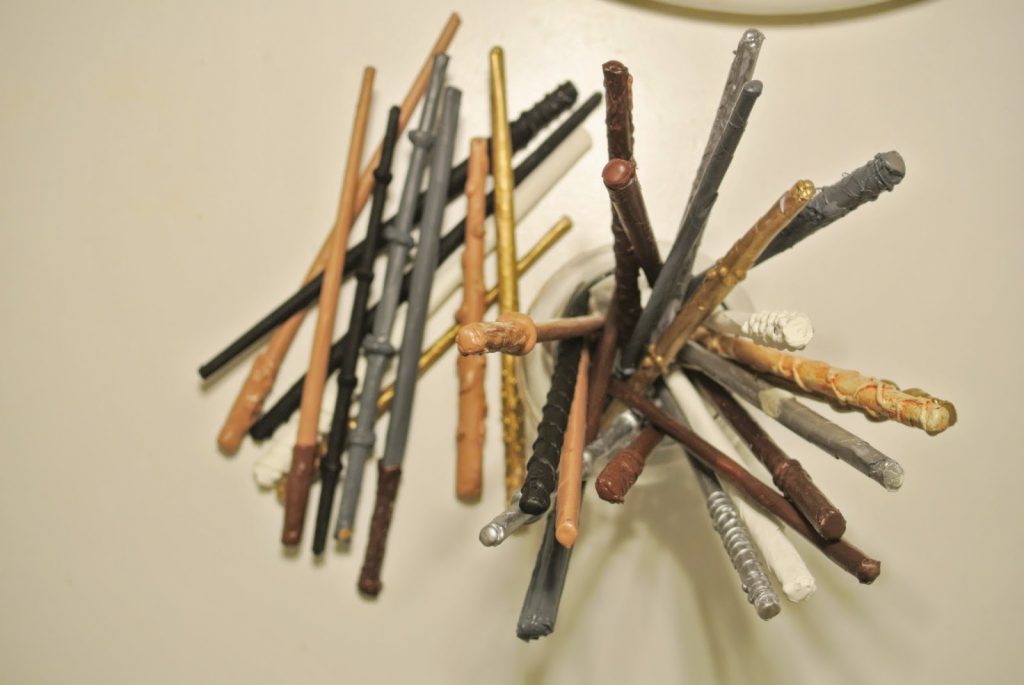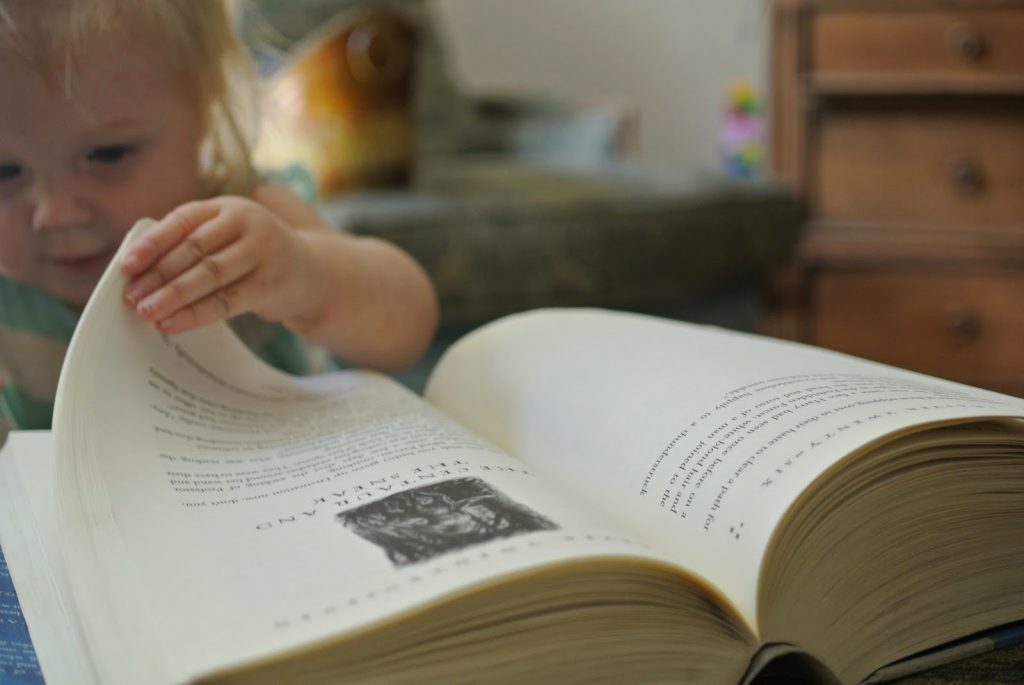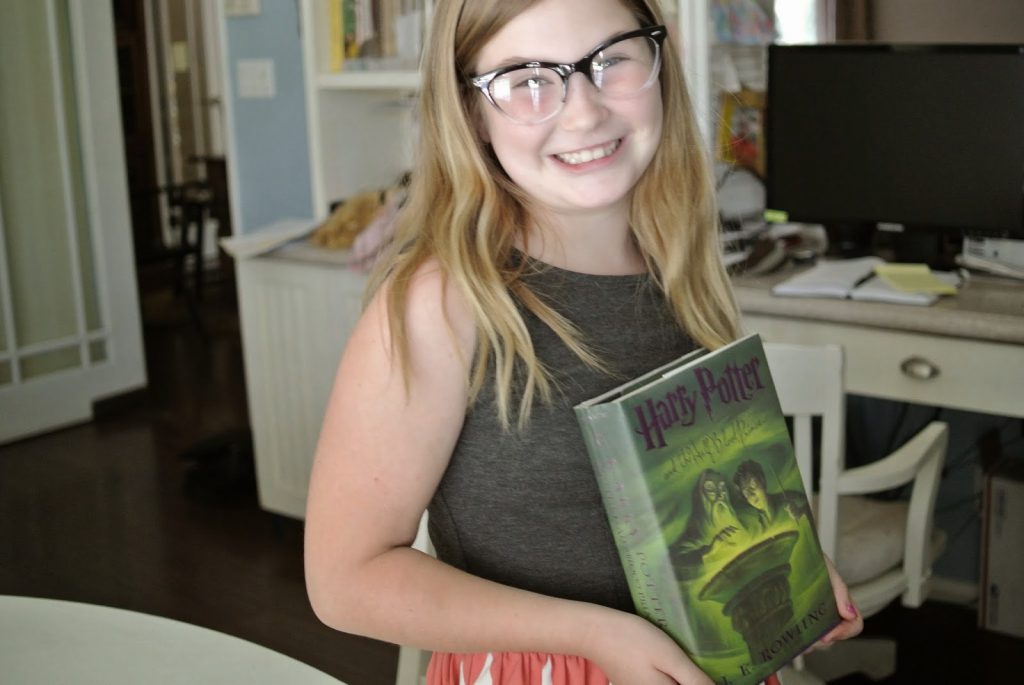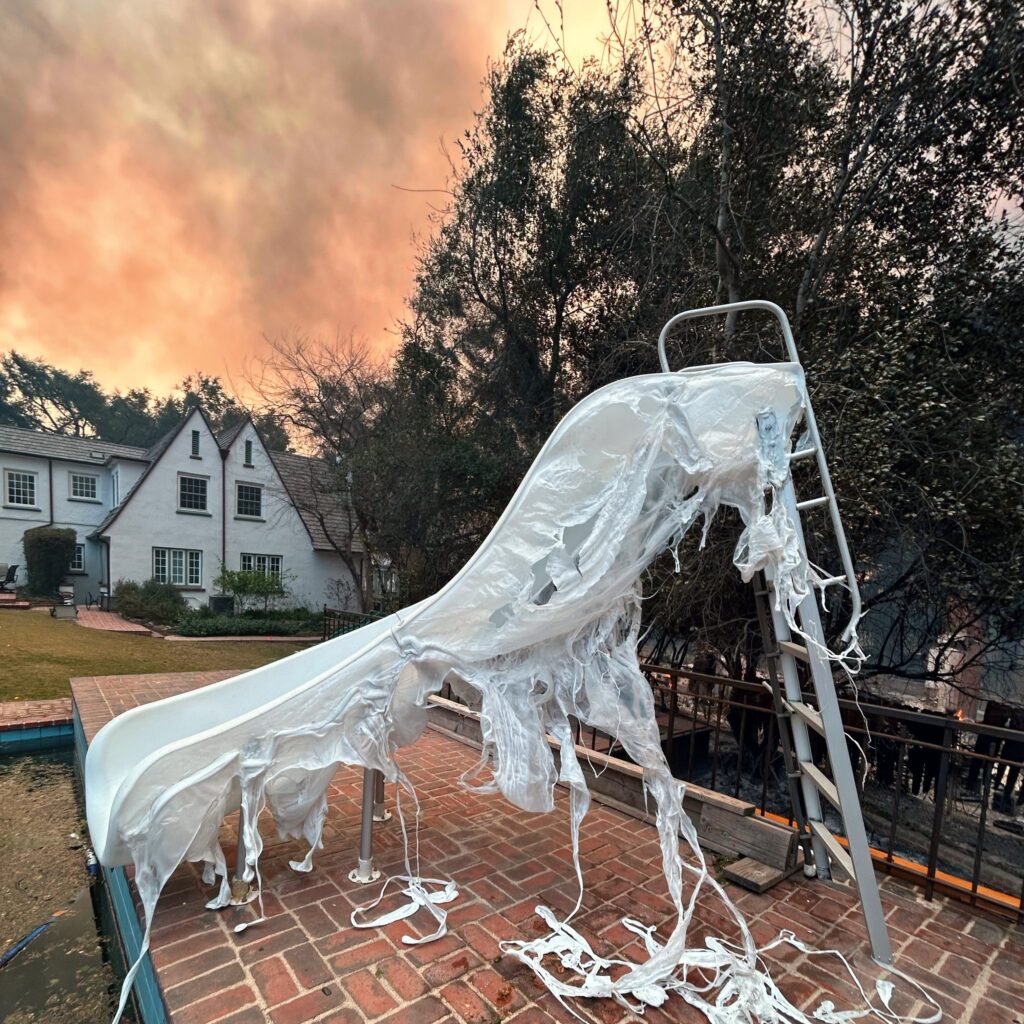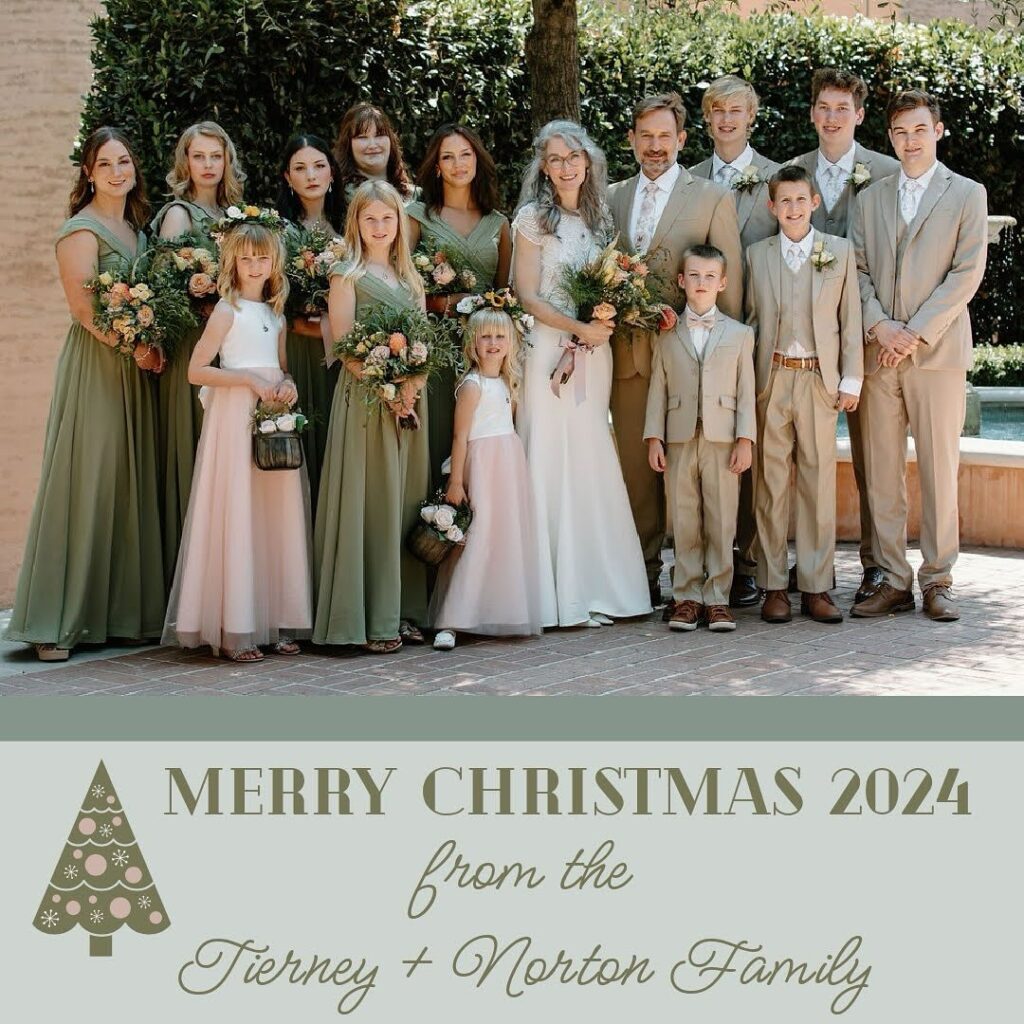Dear Lady Who Commented on My Instagram Photo,
I can’t remember your name, because I deleted your comment very quickly. I don’t usually delete comments, but I just didn’t want a whole big thing to get started. I had a party to plan.The photo was this one . . .
of the handmade wands of paper and glue and paint that my daughter made to give to her friends at her birthday party. I can’t remember exactly what your comment was, either, but it referenced “all magic” being “evil” and “dangerous.” I do remember that much.
I’m not here to say that you, or anyone else, has to like the Harry Potter books. I’m not here to say that you, or anyone else, even has to READ the Harry Potter books. People get to have their own preferences. But I would like to clear up what seems to be a common misunderstanding among people who malign the Harry Potter books, or even just have heard a lot about them, but haven’t read them, and don’t know what to think: that the practice of magic, in any context, is inherently evil, because it says so in the Bible.
I actually wasn’t able to find any Bible quotes that refer to magic as cooperation with or invocation of “the devil” by name, but certainly we’d agree that we would want to avoid glorifying those practices as well.
If we look at the fictional world in which Harry Potter lives, we’ll see that none of those prohibitions would apply to our young wizard’s situation. In Harry Potter’s world, magic powers aren’t something that can be sought. They can’t be gained by a deal with the devil. They can’t be increased by occult ceremonies. You are either born with magical powers or you’re not.
In our world, some people seek to cultivate a relationship with the devil in the hope of gaining magical powers. I don’t personally have any firsthand knowledge as to whether that’s actually even possible in our world, but in NO way is that what happens to Harry Potter or his friends. Harry’s gift of magic powers seems most akin to something like great musical talent. It often runs in families, but every now and again a musical prodigy will spring up from an unlikely place in an unmusical family. He just has a special talent. He didn’t make any deals with the devil to get it.
In a couple of instances in the books, Harry is able to have momentary contact with his parents and other loved ones, who have passed away, but it isn’t through any mediums or seances or invocations of dead spirits. His contact with his parents is an unexpected consequence of his self-sacrifice, and the self-sacrifice of his parents. There are no spells that can raise the dead or contact them, and the character in the books who goes to terrible lengths to try to prevent his own death, is clearly seen to be wrong. And evil. And pitiable. Again, Harry’s contact with his parents is a function of the fact that he lives in a world with magic and magic wands. What happens in his world would not be possible in our own.
Harry doesn’t use his magical powers to try to lead people into belief in false gods. In fact, in the Harry Potter books there is no overt mention of religion at all. As in other popular fantasy stories like The Chronicles of Narnia, The Lord of the Rings, and Star Wars, the Harry Potter books use themes of good vs evil, and great personal sacrifice, to relay Christian themes, rather than writing directly about God and the devil.
But I do think it’s worth pointing out to you that
the author herself, J.K. Rowling, has stated that she is a Christian, and that she absolutely intended the Christian themes found in her books.Magic in fiction is used as a plot device. In fairy tales and fantasy stories, magic allows for characters and worlds wildly different than our own, and yet familiar, somehow. We can lose ourselves in the wonder and novelty of it all, which opens us up to learn truths about ourselves and our own world.
We see this clearly in The Chronicles of Narnia and The Lord of the Rings books. Those worlds are full of magic, and in the case of the Narnia books, that magic bleeds back and forth between Narnia and England, just as it does in the Harry Potter books.
The end of Harry’s story is about ultimate self-sacrifice, redemption, the fight of good against evil, and as with Aslan in
The Chronicles of Narnia and Gandalf in
The Lord of the Rings, death and resurrection. In the final book we see that Harry is, like Aslan, truly a Christ-figure.Unlike Aslan, Harry is imperfect. He disregards rules. He loses his temper. But, that makes him relatable and inspiring. (In an I-can-also-overcome-personal-tragedy-and-triumph-over-evil-and-my-baser-inclinations way, not in a hey-I-should-be-a-wizard way.)
If you yourself, our your particular children have a temptation towards the occult or new age practices, perhaps none of these fantasy series would be a good choice for your home. But if you don’t find yourself in that situation, I would encourage you to pick up the books for yourself, and read what the stories are really about, and not blindly accept as true the unfair characterizations presented by some Christian fundamentalists, or exaggeratedly attributed to a future pope.
I would encourage you to read these books. Maybe you just won’t like them. Some folks don’t. But most folks do. And if you like them, you’ll get to share them and their whimsy and humor and tragedy and powerful messages with your children.
My own policy for most children’s entertainment is three steps: share, discuss, repeat. Harry turns eleven in the beginning of the first book, and, for my own kids, ten or eleven has seemed like an appropriate age at which to let them start reading the books. The Harry Potter books seem to be a good bridge for after they have read The Chronicles of Narnia, but aren’t yet ready to read The Lord of the Rings.
Kids who started reading the Harry Potter books as they were coming out had to wait a year in between each release, which meant a boy who started reading the first book at eleven, would have been eighteen when he read the last book. It feels like the author wrote them with a maturing audience like that in mind. Certainly, the books get more complex and intense and have heavier themes as they go along. But the darker themes of the latter books are war and politics, and difficult decisions, and deaths of beloved characters, not the occult or moral relativism.
I plan to evaluate my own kids on an individual basis, but I was comfortable allowing my oldest son to read all of the books as a tween, and I plan to let my newly-eleven-year-old daughter do the same. I’ll be available to answer any questions she has about Harry’s choices, and to comfort her if the ending makes her cry (as it did me). But the magic won’t worry me one bit. I hope all this helps explain why.
Cheers,
Kendra
P.S. Stay tuned for the party recap post, coming soon!

